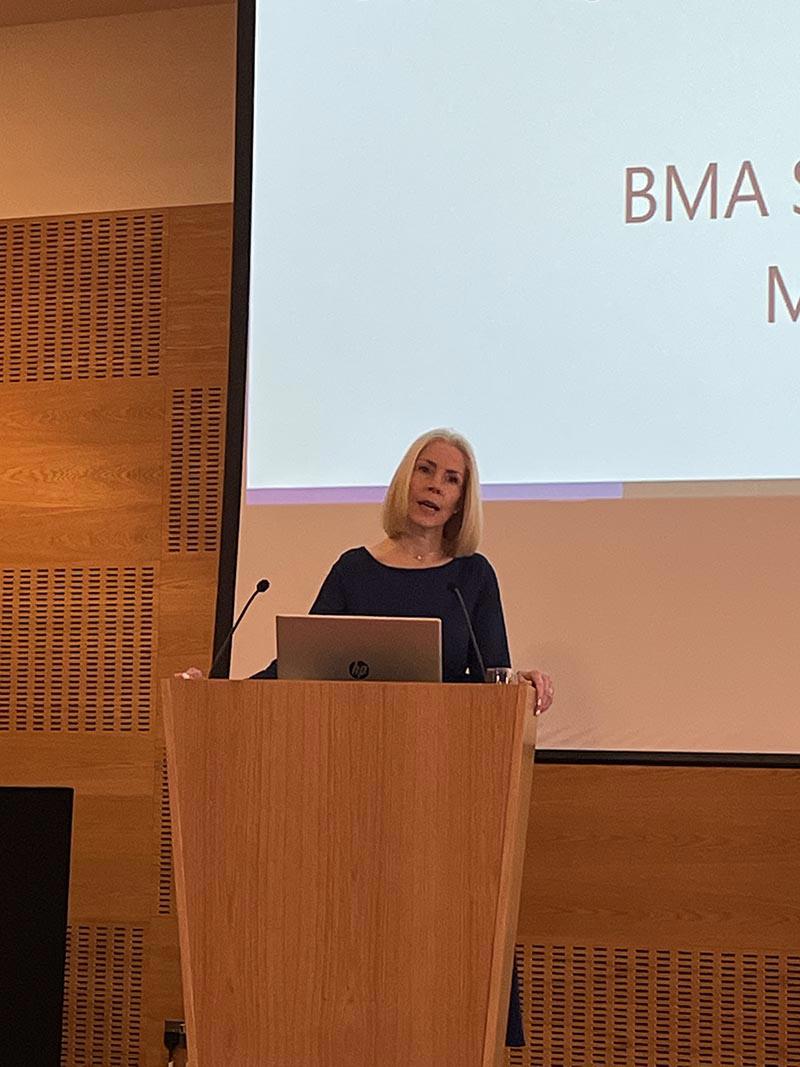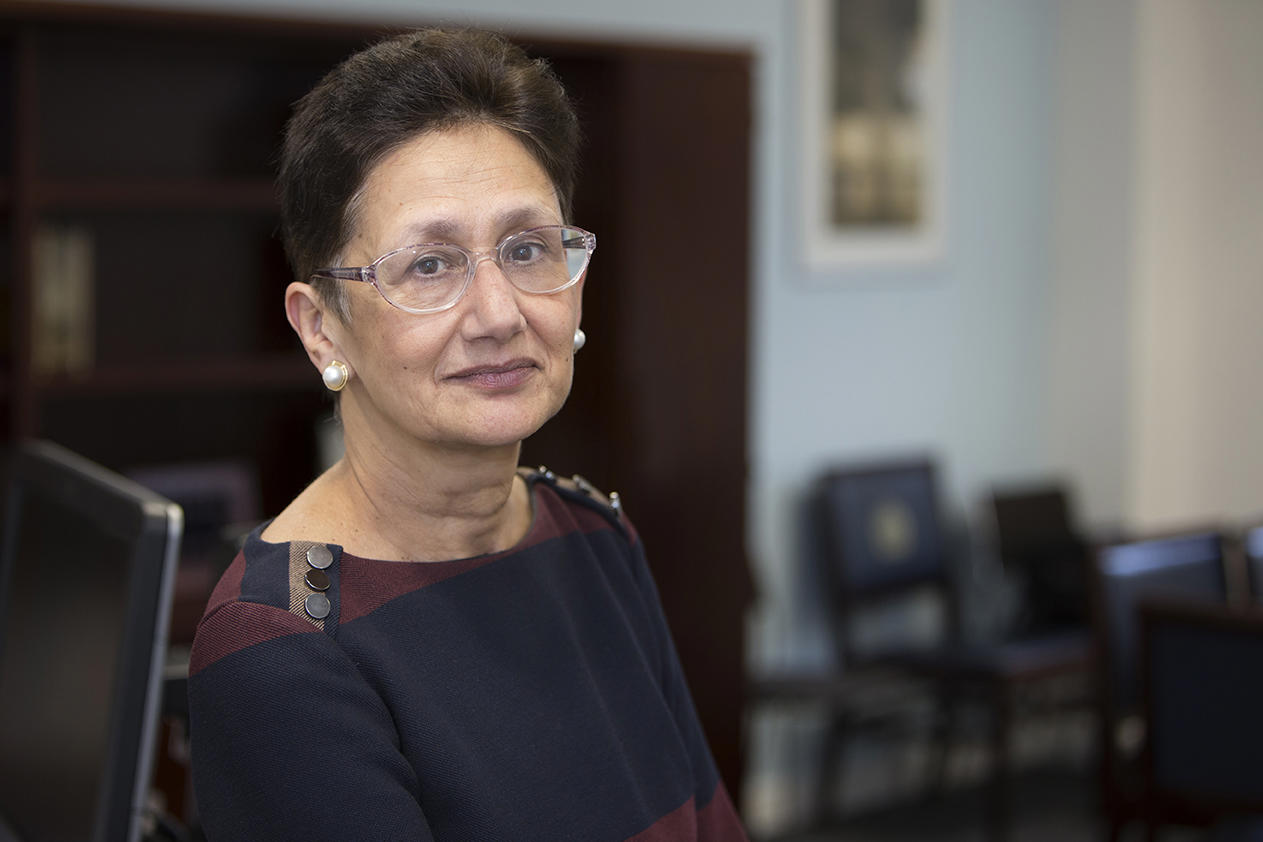Around 100 doctors and medical students gathered in Edinburgh for the first BMA Scottish conference to be held in-person since 2019. Understandably, emotions were running high for some.
‘It’s absolutely brilliant to be in the same room with people,’ said Maeve McPhillips, who was wearing a mask decorated with caged birds. ‘But refraining from hugging people is very hard after two years.
‘I’m looking forward to the guest speakers, but really the big thing is seeing people again, and networking again. Zoom and Teams meetings are all very well, but it’s actually the human touch that makes the difference.'
Dr McPhillips, a retired consultant paediatric radiologist, probably spoke for most of the people there when she spoke of the joy of meeting people again (although maybe fewer agreed on the hugging).
Excitement
 BAULD: Pandemic has shone a light on inequality
BAULD: Pandemic has shone a light on inequality
Doctors and medical students from across Scotland who had made the journey to Pollock Halls on a beautiful early Spring day were palpably excited to be meeting up again after a spell where the pandemic had paused such face-to-face gatherings.
Not that COVID was ever far from delegates’ minds. The Doctor spoke to several who had just recovered from Omicron – all were very keen to point out they had negative lateral flow tests before attending, and, as you would expect, COVID precautions such as mask-wearing and spaced chairs were in place.
The conference was labelled ‘What next for Scotland’s doctors?’ and it was clear that COVID was going to be part of life for some time to come. The effect of the pandemic was threaded through the day’s agenda, including talks directly and indirectly addressing it and its effects. For example, one of the parallel sessions focused on long COVID and working with it and other chronic conditions, while an update on medical ethics addressed many of the ethical concerns flagged by the pandemic, such as vaccine mandates and moral distress.
The morning’s keynote speaker was Linda Bauld, Bruce and John Usher professor of public health at the University of Edinburgh and chief social policy adviser to the Scottish Government. She joined the conference fresh from one of her regular appearances on television, where she has been one of the most respected and eagerly listened to voices on COVID over the last two years.
She spoke not just about COVID and its challenges, but also acknowledged the indirect effects of the pandemic, and the need for post-pandemic preparedness. She also spoke about how to sustain the positives that had come from the last two years, including the importance of collaboration and inter-disciplinary working. The pandemic had shone a light on many of the problems facing the world, in terms of inequalities and the effects of inequalities, she said, and it was important to think ‘broadly’ when preparing for the future.
Planet health
The afternoon’s keynote speaker, BMA president and returning Edinburgh alumnus Neena Modi, also dealt with broad topics – and spoke about the importance of considering health as a part of each and every one of them. She discussed her BMA president’s project, which calls for human health to be recognised as a policy priority, along with the environment and planetary health.
Although the conference dealt with global themes, there was a clear mood in the various rooms – and outside in the sunshine – that it was being together that was the most important aspect of the meeting for many.
 MODI: Human health a priority
MODI: Human health a priority
‘I was very happy to hear Linda Bauld, but it was also great to meet up with everyone in person,’ said Jane Barraclough, a sessional GP in Portobello, near Edinburgh. ‘I’ve been to BMA conferences before and it’s important to keep abreast with things, but what was really good was that it was in-person [rather than online]. It’s harder to have that sort of informal chat when you’re not in a room with people.’
Neera Chaudhary, a medical student at Glasgow University, agreed. ‘The real benefit for us was meeting other doctors and meeting other students. It’s been a great day.’
‘I think we’re all Zoomed out,’ laughed Annie Gemmill, who had travelled from Kirkintilloch, where she is a GP. ‘But it’s been great to see people face to face, and pick up ideas about how other people are working. It’s much easier when you’re in the same room.’

